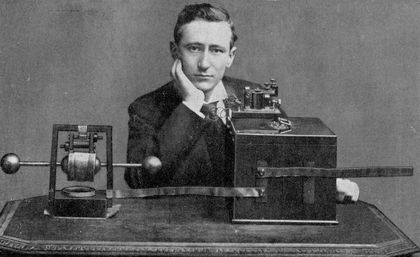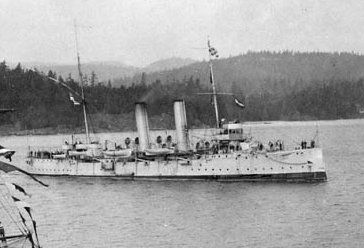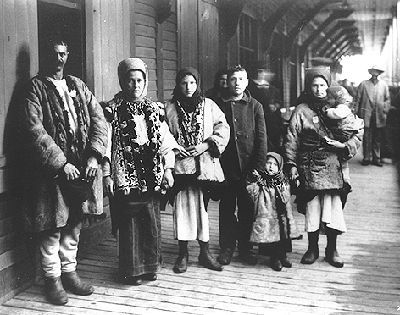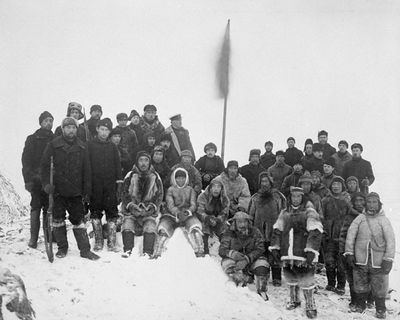Connect the name of an important event during Laurier's term in office to the right date
Click, hold and drag the mouse over available date choices and associate them with a fact. If you choose incorrectly, the boxes will not connect.
First wireless transatlantic radio transmission using Marconi stations
December 12, 1901Purchase of the Canadian Navy's first two ships
May 4, 1910Massive influx of immigrants to the Prairies
1902 - 1914Captain Bernier takes possession of the Far North
November 9, 1906Signing of a free-trade agreement between Canada and the United States
1911| Events | Dates | Descriptions |
|---|---|---|
| First wireless transatlantic radio transmission using Marconi stations | December 12, 1901 | St. John's, Newfoundland to Cornwall, England After this first transatlantic radio transmission, Guglielmo Marconi stated: "It was shortly after midday on December 12, 1901, [in a hut on the cliffs at St. John's, Newfoundland] that I placed a single earphone to my ear and started listening. The receiver on the table before me was very crude—a few coils and condensers and a coherer—no valves [vacuum tubes], no amplifiers, not even a crystal. I was at last on the point of putting the correctness of all my beliefs to test. ... [The] answer came at 12:30. ... Suddenly, about half past twelve there sounded the sharp click of the "tapper" ... Unmistakably, the three sharp clicks corresponding to three dots sounded in my ear. "Can you hear anything, Mr. Kemp?" I asked, handing the telephone to my assistant. Kemp heard the same thing as I. ... I knew then that I had been absolutely right in my calculations. The electric waves which were being sent out from Poldhu [Cornwall, England] had travelled the Atlantic, serenely ignoring the curvature of the earth which so many doubters considered a fatal obstacle. ... I knew that the day on which I should be able to send full messages without wires or cables across the Atlantic was not far distant." |
| Purchase of the Canadian Navy's first two ships | May 4, 1910 | The Royal Navy has grown greatly since 1910. In 2016, the Royal Canadian Navy had 33 warships divided into two Maritime Forces, Atlantic and Pacific. |
| Massive influx of immigrants to the Prairies | 1902 - 1914 | In 1902, my government adopted the Sifton immigration policy. Clifford Sifton was my Minister of the Interior. We wagered that we could increase immigration to Canada by enticing immigrants from Eastern European countries. Between 1902 and 1914, more than 3 million people immigrated to Canada, settling mainly in the Prairie provinces. |
| Captain Bernier takes possession of the Far North | November 9, 1906 | Even today, this Canadian possession is conflict-ridden. Russia and the United States covet a maritime route, open to all in the waters of the Far North, linking the Pacific to the Atlantic and passing through the Arctic. |
| Signing of a free-trade agreement between Canada and the United States | 1911 | This agreement with the United States would not be ratified by Canada. My government was defeated during the next election and the Conservatives would not move on the agreement. Unfortunately, most Canadian citizens feared an economic annexation by their neighbours to the south. |





